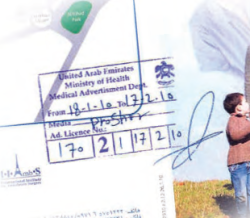The authorities clamp down on misleading marketing
The marketing of health and pharmaceutical products and services is big business – in fact, the biggest. Pharmaceutical organisations have dominated the annual Fortune 500 survey of most profitable companies for many years, ensuring that the medicines manufacturing sector continues to remain buoyant, even in these uncertain times.
With the potential for so much money to be made from consumers who are naturally anxious to do the best to safeguard their health, accusations of unscrupulous practices have been levelled at some multi-national companies. In August last year, it was reported that the US Congress was preparing to debate the restriction on advertisements of certain medicines, as it was felt that many such campaigns resulted in over-medicalisation of trivial health issues that don’t warrant drug therapy.
The New York Times reports Marcia Angell, a senior lecturer in social medicine at Harvard Medical School and former editor in chief of The New England Journal of Medicine, as saying; “Direct-to-consumer prescription drug advertising does exactly what it is intended to do — increase sales for drug companies. Increasingly, it does that by promoting medical conditions, as well as drugs. If the industry can convince essentially normal people that minor complaints require long-term drug treatment, its market will grow.” As recently as January 11, the top story in the popular British newspaper Daily Mail was how Wolfgang Wodarg, head of health at the Council of Europe, had accused the makers of flu drugs and vaccines of influencing the World Health Organisation’s decision to declare a Swine Flu pandemic simply in order to bolster sales of their vaccinations.
The UAE is keen to ensure that its citizens and residents are protected from such shady and unethical selling techniques; not just for medicines, but for all products and services that come under the umbrella of health provision. The authorities are clamping down on certain types of advertisements that target vulnerable consumers; their aim being to combat certain marketing methods that might inappropriately influence potential customers. A healthcare advertising guide, issued by the Ministry of Health, outlines what it considers as unacceptable practices, with sanctions to be imposed for breaches of the code. Examples of what would constitute a misleading advertisement include any that induce fear or worry in the consumer, any that introduce unverifiable or impenetrable scientific data and any that state improvements to sporting prowess, the relief of stress, or the enhancement of academic abilities.
“The fact is that the mass media contained during the last years so much medical advertisements without being subjected to any source of control over such advertisements, nor any confirmation of the nature of these medical centres and the qualifications of the personnel working therein,” says Dr. Abdel Karim Abdallah Al Zarouni, Director of the UAE Ministry of Health Advertising Department. “This represents risks for consumers and may lead even to death, let alone the huge amounts of money spent in most cases without real benefit and this is a kind of deception and swindling,” he adds.
One of the chief concerns that prompted the US congress into their debate on the subject was that consumers may be tempted to bypass their doctors and follow the route of self-medication after simply having watched certain health products being promoted on television. This is something that is echoed by the authors of the UAE Ministry of Health guide.
“We must recall that the physician – and not the advertisement – is the major reference in any matters relating to the health of every person living in our beloved country,” says Dr. Al Zarouni.
The Ministry of Health’s campaign to clean up healthcare advertising is one that is requesting the support of the country’s consumers. The government grants licences to advertisers and all advertisements that appear in publications should be accompanied by a unique reference number that distinguishes it from others. The directive also applies to healthcare institutions and hospitals, not just companies manufacturing pharmaceutical or health products. Any organisation offering a health-related service also has to obtain prior approval from the authorities before advertising and this is applicable to all institutions, whether local or international. The aim is to raise standards across the entire sector of the healthcare industry, ensuring that customers receive honest information to make informed choices and are not coerced into making decisions that could have a negative impact on their health.




